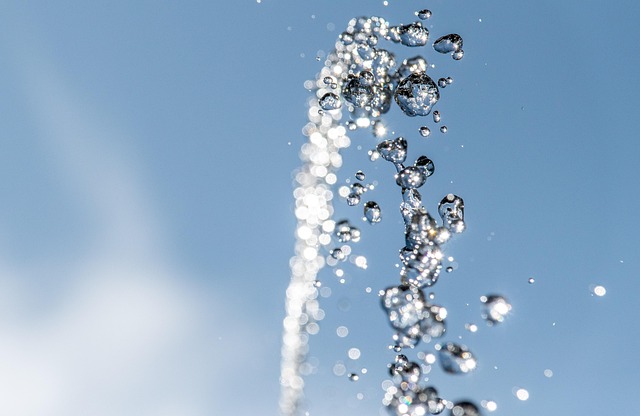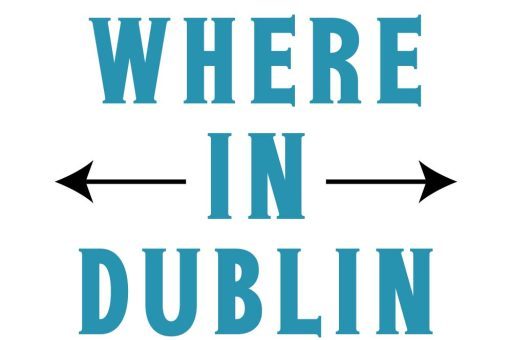
Water is a daily essential, something people rarely think twice about. But the question of quality and safety comes up more often than one might imagine, especially when comparing tap water to bottled water. In Dublin, this topic sparks curiosity, debate, and even concern for many residents and visitors. From my own personal experience, drinking water in Dublin has always felt safe and refreshing, but the comparison with bottled water raises some surprising points that are worth exploring in depth.
Let’s Understand Dublin’s Tap Water
Where Dublin’s Water Comes From
Dublin’s tap water primarily comes from the Wicklow Mountains, specifically from the Vartry Reservoir. This reservoir collects rainfall and is treated at the Vartry Water Treatment Works before distribution. The treatment process ensures that the water meets the standards set by the Environmental Protection Agency (EPA) and the World Health Organization (WHO).
The water undergoes several stages of treatment. First, sedimentation removes particles, followed by filtration to get rid of smaller impurities. Chlorination is also applied to eliminate harmful bacteria. Finally, pH levels are adjusted to prevent corrosion in the pipes.
From my own personal experience, the taste of tap water in Dublin can vary slightly depending on the area. Some suburbs might notice a slight mineral flavor, while central Dublin tends to have a consistent taste that many find crisp and clean.
Safety and Regulation Standards
One of the advantages of tap water in Dublin is that it is highly regulated. The EPA conducts regular testing to check for contaminants such as lead, nitrates, and bacteria. Any breaches are reported, and corrective measures are taken immediately.
Bottled water, on the other hand, falls under different regulations, primarily guided by the European Union’s standards for packaged water. While it is generally safe, the level of oversight isn’t as frequent or localized as tap water testing. This difference in monitoring frequency is something many people overlook when choosing between tap and bottled water.
Environmental Impact of Tap Water
Dublin tap water also scores highly in terms of sustainability. Using tap water means fewer plastic bottles are manufactured, transported, and discarded. Bottled water contributes significantly to plastic pollution, with many bottles not being recycled properly.
From my overall experience, switching to tap water or using refillable bottles in Dublin has a noticeable impact on reducing waste. Even in daily routines, carrying a reusable bottle and filling it up at home or in cafés makes a difference over time.
Bottled Water in Dublin
Popular Brands and Availability
Bottled water is widely available in Dublin supermarkets, convenience stores, and cafés. Brands like Evian, Volvic, and local Irish bottled water options like Ballygowan are commonly purchased.
Each brand claims specific advantages. For instance, Evian promotes natural spring origins, while Ballygowan emphasizes local sourcing from Irish springs. Marketing often suggests purity and better taste, but the actual difference compared to Dublin tap water is often subtle.
Cost Comparison
A clear difference between tap water and bottled water is the cost. Tap water costs just a fraction of a cent per liter, while bottled water can cost anywhere from €0.50 to €2 per bottle in shops. Over the course of a month, relying exclusively on bottled water can add up to a significant expense compared to using tap water.
From my own personal experience, the convenience of bottled water is sometimes appealing, especially when traveling or during outdoor activities, but for daily hydration at home, tap water offers unbeatable value.
Environmental Concerns
The environmental impact of bottled water is another important factor. Plastic production requires fossil fuels, and transportation adds carbon emissions. Even when bottles are recycled, the process itself consumes energy and resources. In Dublin, the emphasis on reducing plastic usage and promoting tap water access is growing, with refill stations becoming more common.
Taste Comparison: Tap Water vs. Bottled Water
How Taste Perception Works
Taste is subjective, but it is influenced by minerals, pH levels, and even psychological expectations. Dublin tap water contains natural minerals like calcium and magnesium, which can give it a slightly distinct flavor. Bottled water may come from natural springs or be purified through reverse osmosis, which can strip away some minerals, making the taste feel “softer” or less pronounced.
In blind taste tests conducted in various countries, including Ireland, many participants could not reliably distinguish between tap water and bottled water. The minor differences often boil down to personal preference.
My Experience Drinking Tap Water in Dublin
From my own personal experience, I’ve found Dublin tap water to be clean, refreshing, and consistent. In comparison, some bottled water brands felt slightly flat, likely due to the absence of minerals or carbonation (if it’s non-sparkling). Tap water tends to feel more natural, while bottled water may be marketed as “premium,” though the actual taste difference is usually minimal.
Factors That Affect Tap Water Taste
The taste of tap water can also depend on the plumbing in individual homes or apartments. Old pipes might impart a metallic note, while newer plumbing often keeps the water tasting neutral. Temperature also plays a role; cold tap water can taste more refreshing, while room temperature water might seem slightly bland.
Health Considerations
Mineral Content
One advantage of tap water is its naturally occurring minerals. Dublin tap water contains calcium and magnesium, which are essential for bone health and other bodily functions. Bottled water may have minerals too, but they are often not standardized or required to match the natural mineral content of local tap water.
Contaminant Risk
Both tap water and bottled water can contain contaminants, but the risks differ. Tap water in Dublin is closely monitored, with immediate reporting if any issues arise. Bottled water, while generally safe, may be affected by plastic leaching, especially if bottles are exposed to heat during transportation or storage.
From my overall experience, relying on tap water at home feels safer due to the rigorous testing and transparency about its quality. Bottled water is convenient, but long-term consumption requires awareness of storage conditions to avoid potential chemical exposure.
Fluoride and Dental Health
Fluoride is naturally present in some water sources and is sometimes added to public water supplies to reduce tooth decay. Dublin tap water contains controlled levels of fluoride, contributing to dental health. Bottled water, however, often does not contain fluoride unless explicitly labeled. This is an often-overlooked advantage of tap water.
Convenience and Accessibility
Tap Water Availability
Tap water is always accessible at home, in offices, schools, and public buildings. Dublin has also been increasing the number of refill stations in public areas to encourage tap water use over bottled options.
Bottled Water Convenience
Bottled water is portable and convenient for travel or outdoor activities where tap water may not be available. This convenience is why many Dublin residents still purchase bottles despite having excellent tap water at home.
Storage and Shelf Life
Tap water doesn’t have an expiration date and is safe when stored in clean containers. Bottled water has a shelf life and can degrade over time, especially if exposed to sunlight or heat.
From my own personal experience, using a large reusable bottle filled with tap water at home or work eliminates the need for purchasing multiple bottles, saving both money and effort.
Economic Perspective
Household Costs
The difference in cost between tap water and bottled water is striking. A family of four in Dublin can save hundreds of euros annually by using tap water instead of bottled options.
Impact on Tourism
Tourists often default to bottled water due to habit or perception of safety. Promoting tap water’s quality can reduce plastic waste and encourage cost-effective hydration for visitors.
Public Campaigns
The Irish government and NGOs have started campaigns highlighting tap water safety, taste, and environmental benefits. These initiatives aim to shift public perception, showing that tap water is not only safe but also better for the planet.
Environmental Perspective
Plastic Waste
Bottled water contributes to plastic waste, which often ends up in landfills or oceans. Dublin has taken steps to reduce plastic waste, including banning certain single-use plastics and promoting recycling programs.
Carbon Footprint
Transporting bottled water generates a larger carbon footprint compared to tap water. Locally sourced tap water requires minimal energy for delivery, making it a more sustainable option.
Community Initiatives
Many Dublin cafés and public spaces now encourage the use of refillable bottles and provide water refill stations. Community awareness campaigns highlight the environmental and economic advantages of drinking tap water.
Common Myths About Tap Water
Tap Water is Unsafe
Some assume that tap water is inferior to bottled water. In Dublin, this is far from reality. Rigorous testing ensures that tap water meets high safety standards.
Tap Water Tastes Bad
Taste is subjective. While some may prefer bottled water due to its marketing, many Dublin residents find tap water crisp and clean. Simple methods like chilling or using a filtered jug can enhance the taste if needed.
Bottled Water is Healthier
While bottled water is convenient, it is not necessarily healthier. Tap water often contains essential minerals absent in purified bottled water.
Tips for Enjoying Tap Water
Use a Filter
If concerned about taste or minor impurities, using a home water filter can improve flavor without compromising quality.
Chill It
Cold water tends to taste fresher and is more enjoyable, especially during warmer months.
Invest in Reusable Bottles
Using a durable, refillable bottle reduces waste and makes it easy to carry tap water on the go.
Regular Maintenance
Ensure taps and pipes are clean to avoid any off-flavors from stagnant water or older plumbing.
Personal Reflections
From my own personal experience, switching predominantly to Dublin tap water has been a rewarding choice. Not only does it save money, but it also reduces reliance on single-use plastics. The taste is consistently good, and knowing that it meets strict safety standards provides peace of mind. Bottled water still has its place for convenience or travel, but for daily hydration, tap water proves superior in nearly every aspect.
Final Thoughts
Comparing Dublin tap water to bottled water reveals that the tap water is safe, cost-effective, environmentally friendly, and tasty. Bottled water offers convenience and perceived prestige, but its actual benefits over tap water are minimal. Residents and visitors can drink confidently from the tap, reducing costs and environmental impact simultaneously.
By embracing tap water, Dubliners can enjoy clean, refreshing hydration while contributing to a sustainable and eco-conscious lifestyle. From my overall experience, the switch is simple, effective, and satisfying.

